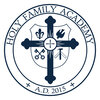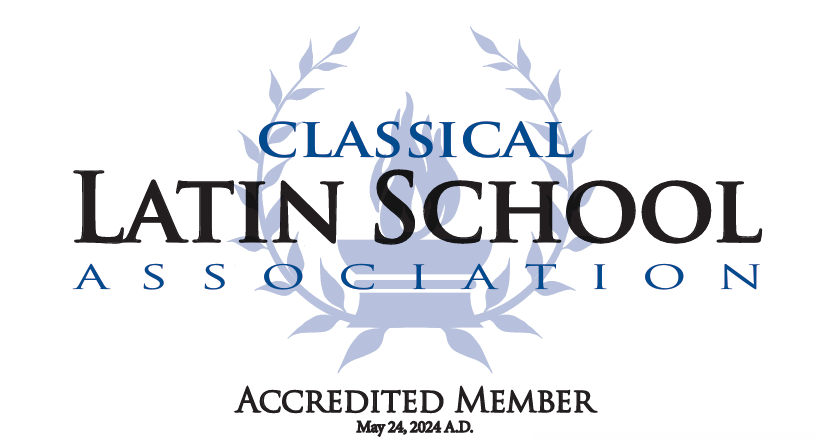What is classical education?
The goal of a Classical education is to cultivate wisdom and virtue through the study of the liberal arts and the Great Books. The liberal arts are the universal linguistic and mathematical skills students need to excel in every area of life. The Great Books are the means by which we pass on the cultural heritage of the Christian West. A mastery of both is the best way to prepare a child for a life of wisdom and virtue.
A thorough study of Latin forms the foundation of a classical education, and the study of classical history and literature fosters a deep knowledge of Western civilization. In all of our classes we strive for continuity and mastery learning.
Classical education also focuses on teaching age-appropriate material through age-appropriate methods. We follow the classical trivium which emphasizes memorization and recitation of facts in the grammar school; evaluation, analysis, and integration of information in the logic stage; and the articulate expression of ideas through the spoken and written word in the rhetoric stage of the upper school.
A thorough study of Latin forms the foundation of a classical education, and the study of classical history and literature fosters a deep knowledge of Western civilization. In all of our classes we strive for continuity and mastery learning.
Classical education also focuses on teaching age-appropriate material through age-appropriate methods. We follow the classical trivium which emphasizes memorization and recitation of facts in the grammar school; evaluation, analysis, and integration of information in the logic stage; and the articulate expression of ideas through the spoken and written word in the rhetoric stage of the upper school.
The PRIMARY School, Kindergarten - 2ND
|
Reading, writing, spelling, and arithmetic are the foundations and highest priority in the primary stage. Students acquire and practice the skills necessary for further learning including letter formation and phonics and progresses to reading, writing, and basic arithmetic. Students are introduced to the memorization of many facts, cursive, Latin, and literary classics.
In the primary school, all assessments are administered at home at the discretion of the parent-teacher. Quarterly progress reports are distributed as a means of teacher communication. |
The Grammar School, 3rd - 6th
|
The mind of a child has the incredible aptitude to absorb information readily and has the innate desire to do so; therefore, the memorization and recitation of facts is emphasized in the grammatical stage. Students memorize the dates and places of historical events, geography, rules of grammar, Latin vocabulary, and facts about the plant and animal kingdoms. Students continue to build upon the skills learned in the primary stage and study classic literature.
In the grammar school, students are assessed on campus in mathematics, Latin, and English to ensure mastery before advancing to the next level. All other testing will remain at-home at the discretion of the parent-teacher. Quarterly progress reports are distributed as a means of teacher communication. |
The upper School (logic), 7th - 9th
|
At the beginning of the logical stage students become capable of abstract thinking. They explore cause and effect and recognize how facts comprise a logical framework. Students begin to make judgements and form arguments. While memory work is still important, the focus shifts to analysis of the facts and drawing conclusions from observation. Skill and understanding of composition, literature, and Latin are expanded and deepened during this stage.
While seventh graders at Holy Family Academy only test in mathematics, Latin, English and logic on campus, beginning in eighth grade all assessments are administered on campus. A transcript is available for all students in grades 8th-12th through our online grading program, however a final/official transcript should be prepared by the parent-teacher. |
The upper School (RHETORIC), 10th - 12th
|
In the rhetorical stage, students begin formal reasoning, deduction, and induction. The student builds upon the previous two stages of analytical logic and foundational information and can comfortably go from known judgements to reasoned conclusions that were previously unknown. They grow in confidence dealing with the abstract and reflexive arts and learn to express themselves using eloquent language and persuasive argument.
As mentioned above, beginning in eighth grade all assessments are administered on campus. A transcript is available for all students in grades 8th-12th through our online grading program, however a final/official transcript should be prepared by the parent-teacher. |







